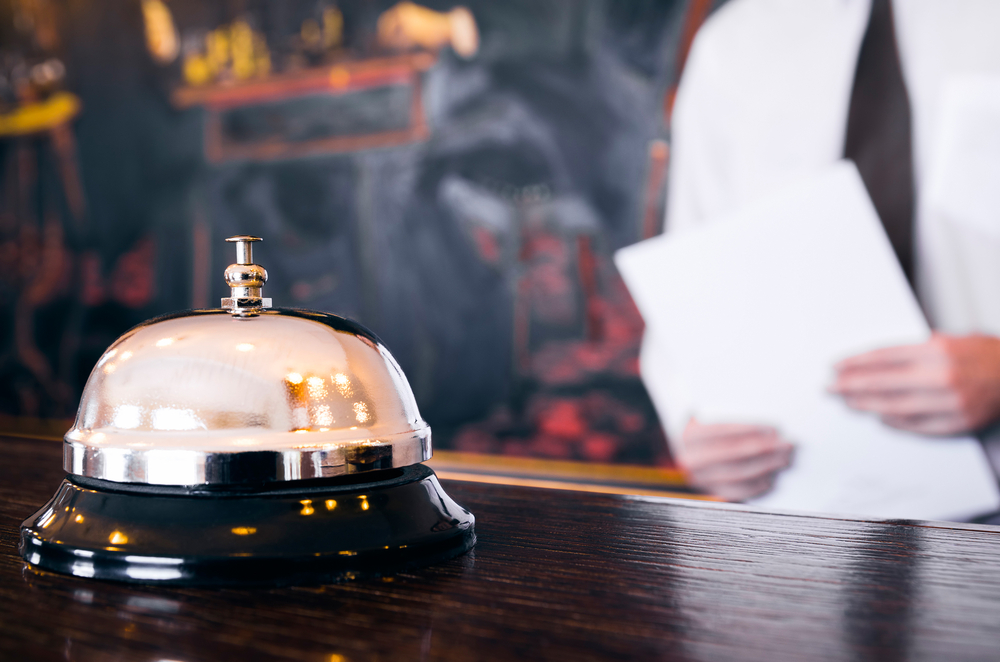A massive €5 billion industry, the Irish hospitality industry is the fulcrum of a massive tourist industry, amongst the most successful anywhere in the world.
There are currently 18,377 (2018 data) companies working in the hospitality-related accommodation and food services sector in Ireland, with a workforce of approximately 177,000. This compares to 148,000 at the end of 2016, so that gives some indication of the continuing growth within this diverse and dynamic industry.
Hospitality sector: a booming industry
For those organisations operating within hospitality sector; pubs, bars, hotel, B&B’s, hostels, self-catering apartments, restaurants, cafes; there is increasing competition for labour amidst a booming jobs market, which is currently nearing full employment. Although there a are a great range of careers available to students, graduates and postgraduates within the hospitality industry, the sector did suffer from poor perception in terms of career opportunities, pay and conditions. This sector has worked hard to overcome this with significant departmental investment in informational and marketing campaigns highlighting the diversity and richness of the opportunities available.
Tourism
The number of tourists visiting Ireland continues to increase year-on-year and has recently reached close to the 10 million mark. With this, there has been a demonstrable impact on the Irish hospitality accommodation sector; 65% of providers are reporting a consistent improvement in business. On a general level, incorporating other accommodation providers and those in the food and drink industry, 70% of tourism businesses say that they are seeing profitability improve, with a similar amount confident of these improvements continuing. These figures were released by the state tourism agency Fáilte Ireland.
In relation to the jobs sector, over 40% plan to increase the number of people they are employing, with increases in employment especially common amongst those in the hotel sector. In this area, 79% are predicting they will have to increase staff numbers. Almost 50% said that they would be taking on up to five additional people and over 30% said they would be taking on between five and 15 additional staff members.
The amount of money that tourists are spending here continues to increase, according to 2016 data which showed that international visitors here spent over €6.5 billion, which was up over nine percent on the previous year.
The importance of education
In terms of preparing students for a successful career in this area, almost all institutes of technology offer well resourced and industry-proven courses at levels 6, 7, 8, 9 all the way up to 10, PhD level. These continue to evolve in order to meet the growing needs of this ever-expanding industry. Some of the areas of growth for this sector include cultural-tourism, which is in line with global trends. Drawing on our rich and long heritage, Ireland is well positioned to continue to benefit from this with cultural events, dedicated tourist trails (Wild Atlantic Way for example) and festivals all designed to maximise both internal and international tourism. Other areas of growth, and in which Ireland has a strong tradition, include food tourism, sustainable tourism, adventure tourism, and spa tourism.
There have also been significant developments in the area of sports tourism, with Ireland to host games at the UEFA European Cup Finals in 2020. Rugby remains a very strong draw on the Irish sporting and tourism calendar. Business and corporate tourism may be better-called business travel, but it’s still a market that Ireland has sought to gain a significant foothold in terms of conference facilities, with the convention centre and Croke Park in Dublin adding to already established facilities like the RDS. On a regional level, this area is very successful and attractive for larger and more prestigious hotels and associated restaurants and facilities.
Third Level training
Undergraduate degrees are now the standard entry point for a successful start to a career in the hospitality industry, with postgraduate courses now also highly sought after. This is particularly true for specialised areas of business or technology. Having a comprehensive ability in a foreign language is also a viable skill. This is an industry where distance or part-time learning could be particularly applicable when it comes to choosing a postgraduate course. In terms of hard and soft skills, tech and commercial awareness skills are obviously key, as are strengths in sales and business development. Customer service is obviously an absolute imperative, as is teamwork. If you are considering a career within the hospitality sector, you need to consider the implications of the sector’s 24/7/365 nature and how that impacts on working hours. But it also provides for great flexibility in terms of how you develop your career, with major players in this sector seeking to take on people who can be multi-disciplinary and ambitious.












Comments